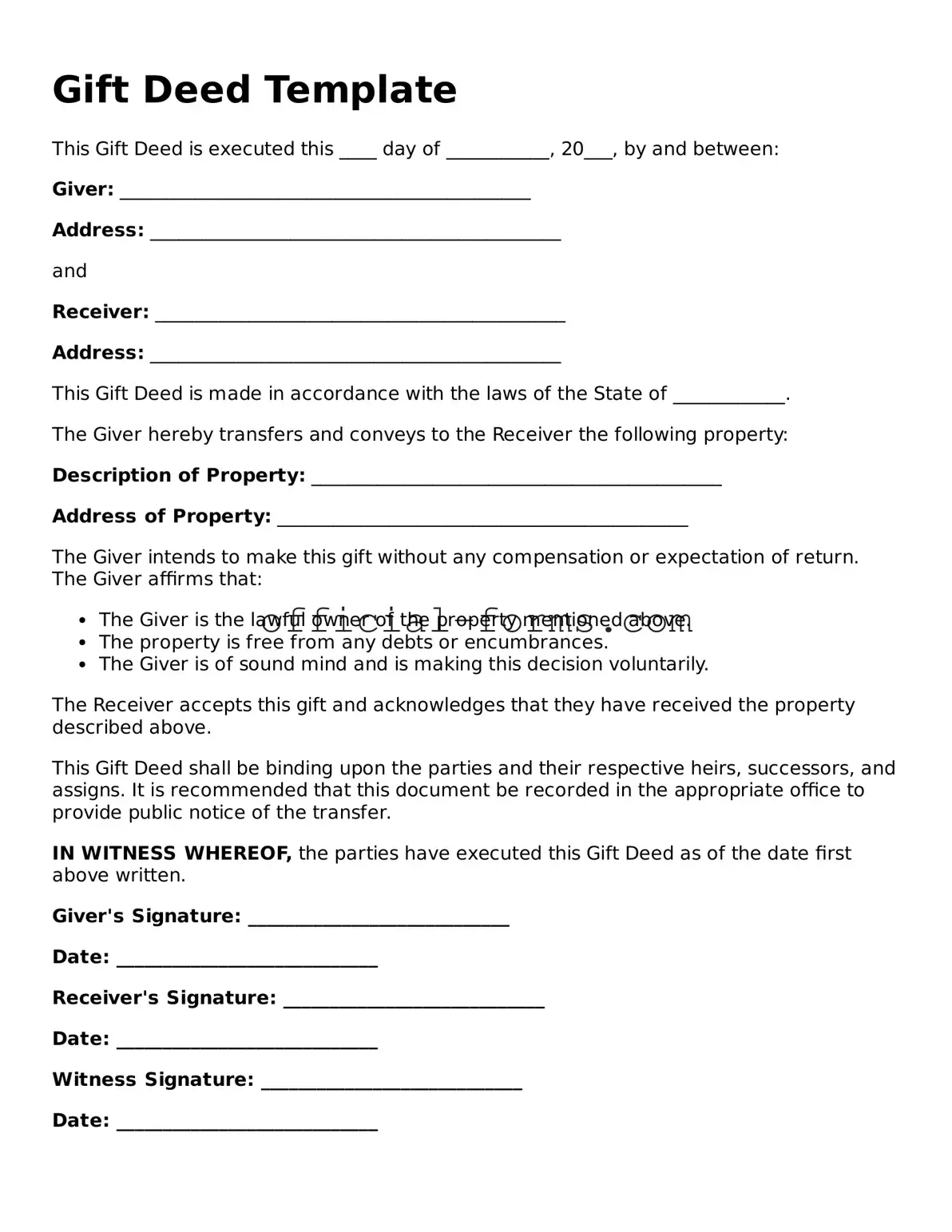Attorney-Verified Gift Deed Template
A Gift Deed is a legal document that allows one person to voluntarily transfer ownership of property or assets to another without any exchange of money. This form is essential for ensuring that the transfer is recognized by law and protects the interests of both the giver and the recipient. Understanding how to properly execute a Gift Deed can help avoid potential disputes and ensure a smooth transfer of ownership.
Open My Gift Deed Now

Attorney-Verified Gift Deed Template
Open My Gift Deed Now
Don’t leave your form incomplete
Finish Gift Deed online quickly from start to download.
Open My Gift Deed Now
or
➤ PDF
